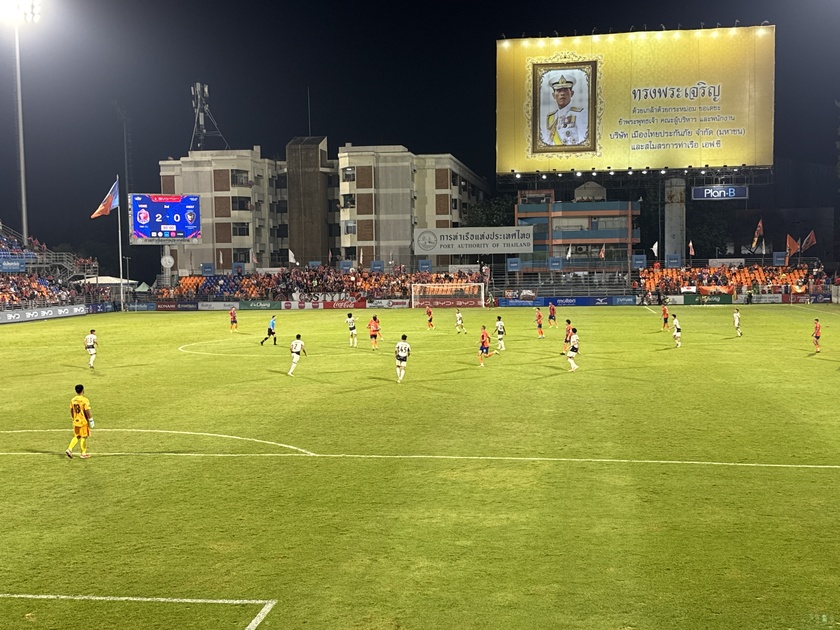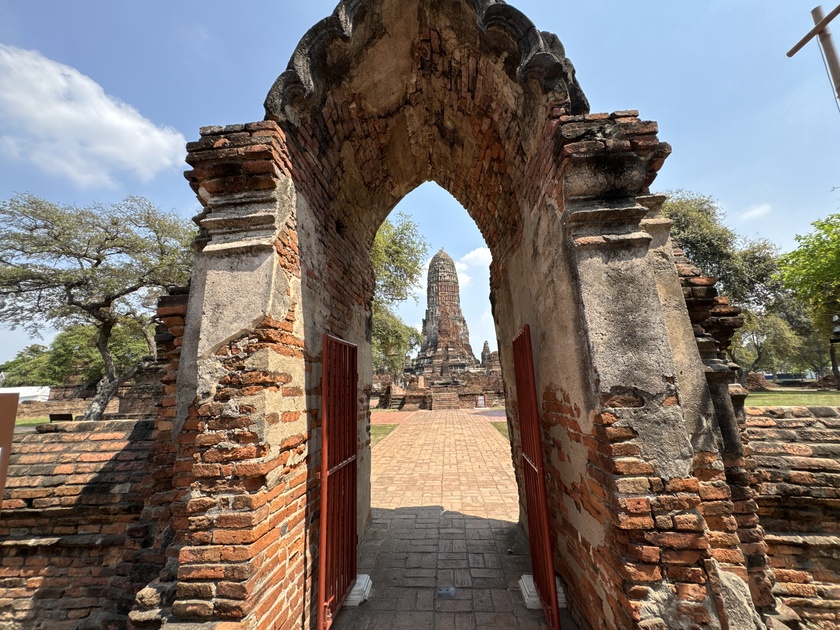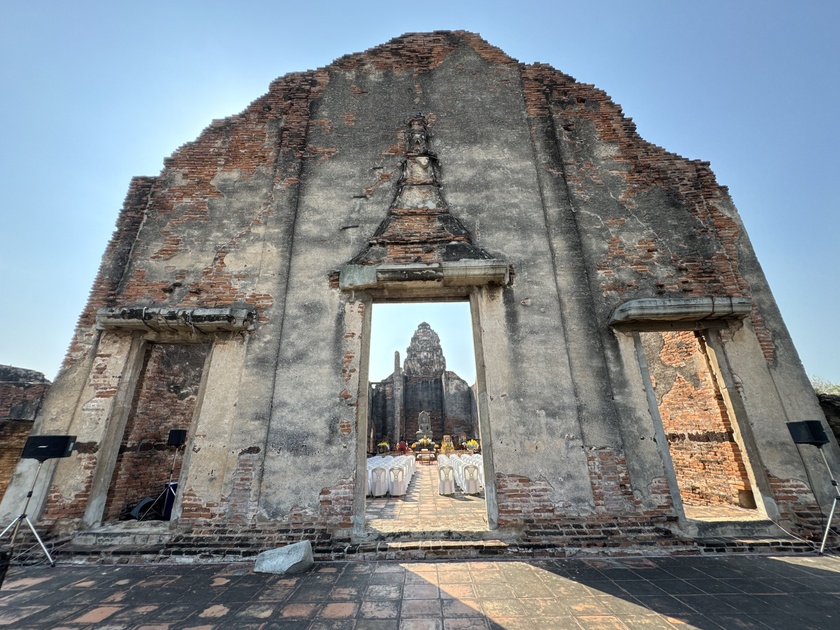Ku Phra Ko Na กู่พระโกนา
The largely intact 3 towered, 11th-century sanctuary, located in the southern region of the province and accompanied by a substantial-sized baray to the east, (Baray Ku Phra Ko Na), indicate the site was one of some importance.
The 3, east-facing, brick shrines are positioned on a laterite and sandstone platform with an enclosing wall and traces of four gopuras.
The central shrine was renovated in the 19th century and given a coat of stucco, the northern tower is partially collapsed and is covered by a roof to prevent further damage. Only the southern tower retains something of its original appearance. Most of the sandstone door frames and lintels, and even a pediment, remain on site.
The reliefs are likely to be early to mid 11th century in a Khleang or Baphuon style.
The northern tower features a large, double-register lintel depicting a reclining Vishnu with a now missing deity seated upon Kala below. A small, damaged pediment above the lintel appears ...
Port FC hosted Nakhon Ratchasima (also known as Korat or Nakhon Ratchasima Mazda FC) at PAT Stadium in Bangkok for a Thai League 1 Round 22 clash on February 21, 2026, with the home side entering as strong favorites given their solid position near the top of the table and the visitors languishing at the bottom.
Pre-match analysis heavily favored Port, who sat in third place with strong home form, having won a high percentage of recent PAT Stadium games while showing consistency in attack and defense. Nakhon Ratchasima, in contrast, struggled badly away from home and had endured a run of losses with poor scoring output, making them vulnerable against a motivated Port side chasing higher spots.
Head-to-head history also tilted decisively toward Port, who had dominated most prior encounters with a clear win record and higher average goals in those fixtures. Predictions commonly pointed to a Port victory, often with over 2.5 goals or a clean sheet, reflecting expectations of home dominance.
In the ...
Wat Phra Ram วัดพระราม
Wat Phra Ram is a restored ruin located in the Historical Park of Ayutthaya in Pratu
Chai Sub-district and situated close to the Grand Palace and Wat Phra Sri Sanphet in a
swampy area called Bueng Phra Ram. The monastery was constructed on the cremation
site of the first Ayutthayan monarch, King Ramathibodi I.
The exact time of its construction is not known as the various Chronicles of Ayutthaya
give different timings of its construction. The oldest version, the Luang Prasoet, written
during the Late Ayutthayan era, states its establishment in 1369 . Later versions
written in the post-Ayutthayan era put its construction in the year 1434, after the death of Borommaracha II somehow 65 year later.
The Luang Prasoet version tells us that Wat Phra Ram was the first constructed temple
at the time King Ramathibodi I passed away. The later versions could also be interpreted
as that the monastery was expanded with a Khmer-styled prang and a vihara. Nobody
knows exactly.
The ...
Wat Phra Sri Rattana Mahathat
Large Royal temple in Lopburi founded by the Khmer 800 years ago.
The Wat Phra Sri Mahathat is a large Royal temple in the center of Lopburi. The temple was founded when Lopburi was under control of the Khmer empire from Angkor, in present day Cambodia.
The eight acres complex which is little visited by foreign tourists houses structures from several periods, the oldest ones being the main prang dating back around 800 years.
Khmer style Prang
The main prang was built by the Khmer in the Bayon style in the late 12th or early 13th century. Standing on a platform, it was probably flanked by similar prangs of smaller size, of which virtually nothing is left. On the West side a portico protrudes out from the structure, giving access to the prang’s interior.
The prang was adorned with fine stuccoed artwork depicting scenes from the life of the Buddha, some of which are still intact. Inside is the cella, the room where the Khmer people worshipped the linga, the representation...








































